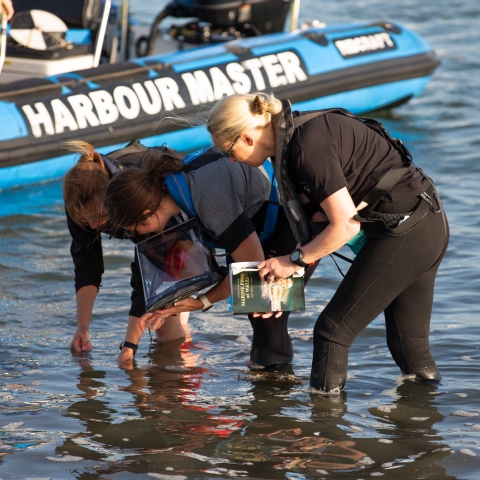
Competition for jobs in this sector is high and work experience could be the deciding factor to securing a graduate job. Undertaking work experience is invaluable in developing expertise and the all-important transferable skills, which will help you demonstrate your motivation and commitment to this area of work.
However, finding experience will take time and effort; employers receive many CVs every week so you will have to work hard to stand out from the crowd. You can find out more about how to create a targeted CV in our CV Toolkit.
Types of opportunities
Volunteering is a very popular way to gain experience in this sector. You could find opportunities in carrying out practical conservation, research, recording and monitoring activities, or fundraising and campaigning. Competition for salaried employment is intense so many roles are carried out by volunteers and work can be seasonal.
Look for voluntary roles on:
Participating in environmental and conservation projects overseas is also a popular way to gain experience in this field. It is however recommended to conduct thorough research into the projects, and understand any potential costs that may be involved, before committing yourself to participate. Below you will find details of organisations that offer voluntary opportunities relating to various projects worldwide:
Another way to gain valuable work experience in this field is through an internship or an industrial placement. Sometimes the terms "internship" and "placement" can be used by employers interchangeably, so it's important to read job adverts in detail so you are aware of an employer's expectations about the length of time you'd be working with them.
An internship is a work experience opportunity that usually lasts between 6 - 12 weeks. Internships are frequently completed over vacation periods, particularly during the summer months.
Find out more about internships
An industrial placement can be taken as part of your degree course and usually lasts an entire academic year. If you're interested in doing a year-long placement, contact the Placements Team within the University's Careers & Employability Service. They can support you in finding a suitable opportunity which meets the University's requirements.
Find out more about Placements
Search for internship or industrial placement opportunities using the resources below:
Speculative applications
Speculative applications involve sending a CV and cover letter to an employer to ask if they can offer any work experience, even if the company is not currently advertising placements or internships.
Submitting a speculative application shows your interest in a specific company and your willingness to go above and beyond to develop your skills and understanding of the industry.

Environmental sector career guide
Your guide to building a career in the environmental sector.

Getting started in the environmental sector
Take the first steps to researching a career in the environmental sector.

Finding a job in the environmental sector
Explore different ways you can secure employment after you degree.







